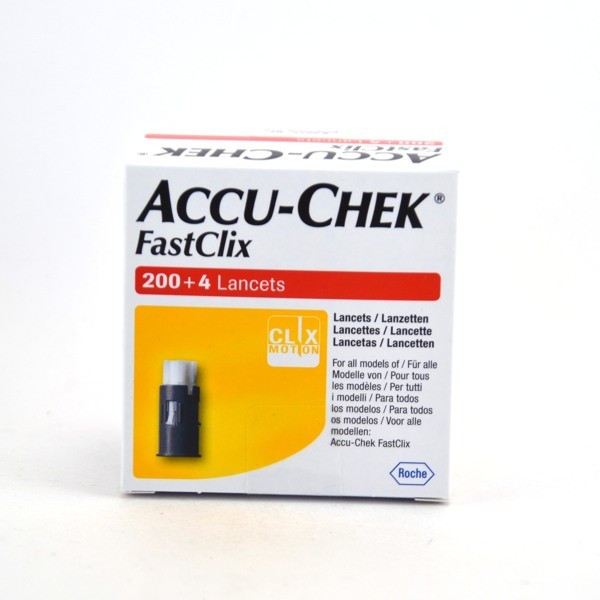Description
Accu-Chek FastClix lancets are used with the FastClix lancing device, also available on the Pharmacie des Drakkars website. This device is intended for diabetic patients who wish to monitor their blood sugar levels daily. You can then quickly draw a drop of blood, without any pain. These lancets are easy to use thanks to a lever that makes it easy to change the lancet. The barrels are equipped with a viewing window allowing the number of remaining lancets to be checked. You can choose from 11 puncture depths to match the puncture to your skin texture. Blood sampling from the fingertip is painless for 9 out of 10 people Very practical, this needle refill contains 6 lancets. During handling, it is impossible to prick yourself, this minimizes the risk of accidental stings. These refills only require 2 steps before collection (instead of 7). Only works with the Accu-chek FASTCLIX pen.
Usage tips
Place a "cartridge" of lancets in the Accu-chek FASTCLIX lancing device. After setting the puncture depth (from 1 for the shallowest, thinner skin to 5 for the deepest, thick skin), position the lancing device on the side of a finger, preferably on the ring finger and ear, then press the small yellow button. A drop of blood should appear, sufficient for the blood glucose strip previously installed in the meter. The refill is a barrel of 6 lancets, with viewing window. To change the lancet, simply twist the front of the FastClix pen in the direction of the arrow at the tip of the pen. You will see the number change from 6 to 5 (etc.), passing to the next lancet. When the number 1 appears, you are at the last lancet in the barrel. Once used, remove the cap from the Accu-chek FASTCLIX lancing device and dispose of the cartridge in the trash. To check that the cartridge is empty, a red ring appears on it. No risk of contamination or accidental sting. Then put a new "cartridge" of lancets. Tips and tricks: - Put a new needle before each lancet injection, so you are sure that the lancet is clean (we avoid the doubt of "did I turn and change the lancet yesterday or not?") - Why preferably l ring finger or little finger? These are the fingers that are used less, they are not part of the gripping fingers. - Why bite on the side: the sensitivity is less, but we know that the sensitivity decreases in the long term, especially in a diabetic.




